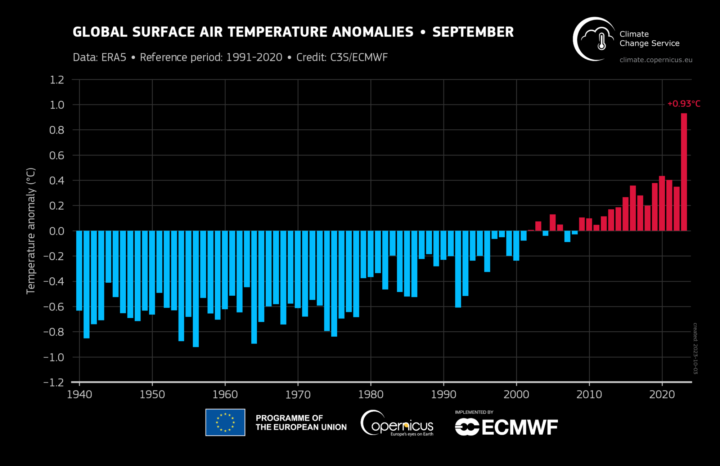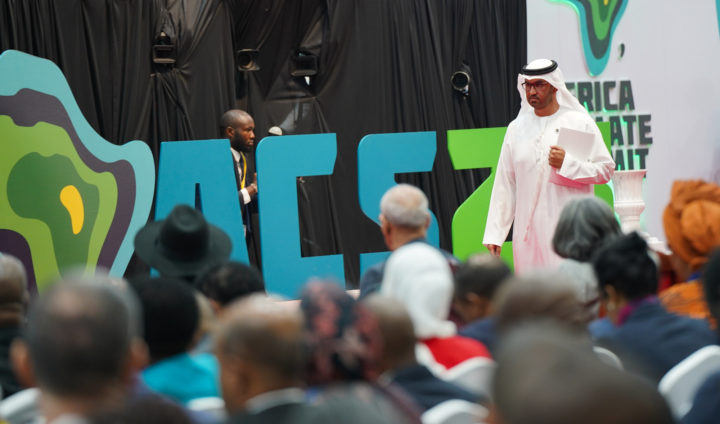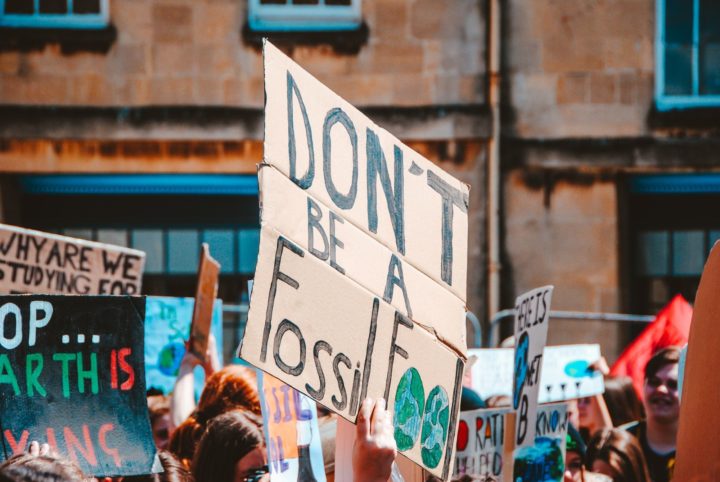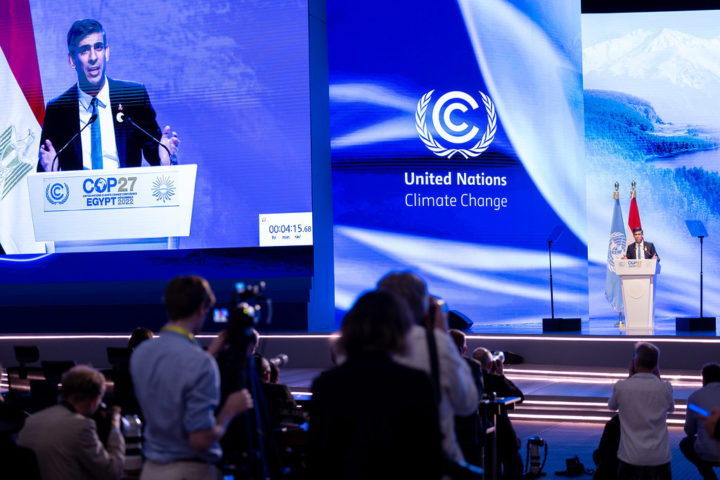What to expect from COP28?
With just weeks until the next UN Climate Summit, hosted by the UAE, we look ahead to what is likely to be on the table in Dubai and the backdrop for the talks.

By Gareth Redmond-King
@gredmond76Share
Last updated:
The next UN climate summit – COP28 – kicks off at the end of November. It is always tempting to claim that the next COP is one of, or even the most important yet. But whatever is formally on the agenda, it does tend to be true – if only in the sense that emissions continue, climate impacts worsen, and the window for acting in time to limit temperature rises to 1.5°C is shrinking fast. This is no exception; whilst there is hope from progress in recent COPs, there is a growing urgency to move faster.
Growing urgency
Both the Intergovernmental Panel on Climate Change (IPCC)’s sixth assessment report, and the UN’s global stocktake on progress against the Paris Agreement goals to tackle climate change, provide detailed and thorough evidence that we are on track for something like 2.6°C of global temperature rise. The IPCC – made up of the world’s climate scientists and governments – is clear, though, that we have the tools we need to halve emissions this decade and get on track for net zero and 1.5°C. And the global stocktake – in common with the International Energy Agency – is clear the path to that lies via rapid scale-up of renewables, and phasing out fossil fuels.
The IPCC also warned climate impacts are worsening, which 2023 has so far underlined forcefully. The hottest northern hemisphere on record included the hottest June and hottest month ever (July), as well as highest ocean temperatures in the Med, north Atlantic and gulf coast, devastating and unprecedented wildfires, flooding and other extremes. Even before El Niño returned, southern hemisphere nations have seen record high temperatures in their winter. As we head towards southern hemisphere summer, Australia has started October with record temperatures and the first wildfires of what could be a very dangerous season. Most recently, the EU's Copernicus climate change monitoring system has just reported on unprecedented temperature anomalies in September; so anomalous, one scientist dubbed them "absolutely gobsmackingly bananas".

Limited global leadership
Despite this, there has been slow progress and limited leadership at recent international gatherings. Mid-year meetings in Bonn spent most of their time debating the agenda. G7 leaders committed to speed the transition to renewables, and G20 leaders to tripling clean energy – but both with limited detail and no commitment to fossil fuel phase-out timescales.
The EU and High Ambition Coalition of nations have called for fossil fuel phase-out at COP, and the UN Secretary General has continued to be a powerful voice for greater urgency. Convening climate leaders in New York. Last year’s COP, in Egypt, also saw 80 nations call for fossil fuel ‘phase-down’; language which did not make it into the final agreement.
Meanwhile, the IMF calculated global subsidies for fossil fuels soared to $7.2 trillion (7% of global GDP) in 2022 as oil and gas executives gathered in the UAE recently to celebrate $4 trillion in profits that year, off the back of soaring prices caused by Russia’s invasion of Ukraine.
But global momentum
But also meanwhile, global momentum on investment in clean technology continues apace, with IEA chief Fatih Birol suggesting we are now on track for fossil fuel use to peak this decade. The US Inflation Reduction Act is fuelling a race to the top with the European Union to incentivise businesses to invest – both competing with China, which is deploying renewables at a rate, and level of investment, that leaves the rest of the world standing.
COP28 hosts

The United Arab Emirates is one of the world’s top ten oil exporting countries. Its COP president-designate, Dr Sultan Al Jaber, will fulfil the role alongside others he holds: CEO of state-owned oil company ADNOC; chairman of state-funded renewables company Masdar; and Minister for Industry and Advanced Technology.
Many have suggested being CEO of an oil and gas company, especially one on track to increase its emissions by 40% this decade, is not super-compatible with leading global climate talks. Nor has the UAE a particularly strong record; Climate Action Tracker rate their updated pledge as ‘insufficient’ overall; highly insufficient on ‘fair share’ of emissions cuts. In recent months, they announced increased investment in renewables of $54 billion over seven years. However, they also announced nearly four times that ($150 billion over five years) to expand oil production to five million barrels a day by 2027.
COP28 ‘agenda’
Al Jaber initially seemed keen to talk up renewables rather than facing down fossil fuels. However, recent months have seen a change of tune, including when speaking to oil and gas companies, that “phasing down of all fossil fuels is inevitable and essential.” He included this in his letter to parties, setting out the UAE’s priorities for COP28 as:
- Fast-tracking energy transition – an energy system free of unabated fossil fuels by 2050, tripling renewables, and doubling energy efficiency investment by 2030.
- Finance – delivering on existing promises, and working to a new deal on climate finance, in recognition that developing nations need more than $2.4 trillion in annual investment by 2030.
- Nature and people – focusing on adaptation, resilience, and loss and damage; and
- Inclusion – of people and non-state actors at all levels, for “the most inclusive COP”.
Inclusion is surprising from a state that limits rights of women, LGBTQ+ people, and the media, and has a poor human rights record in relation to its critics. It will be interesting to see whether, as in Egypt, the inclusion narrative is confined inside the walls of COP.
As to the rest, global stocktake discussions in October, based on the UNFCCC synthesis report, should form the centrepiece for the tone and detail of issues that will be foremost in Dubai – filling the gaps to put Paris’ goals within reach. The summit itself is important for re-building co-operation in a geo-politically challenging world, with populism on the rise in many places. And the focus beyond COP will be for parties to return in 2025 with updated nationally determined contributions (NDCs – each nation’s commitments towards delivering on the Paris Agreement goals) that deliver on agreements reached in Dubai.
Mitigation

Fossil fuel phase-out (or ‘down’) will be at the heart of discussions at COP28, alongside commitments to triple renewable deployment. COP26 made reference to phasing down coal in its decision for the first time, and unsuccessful efforts were made at COP27 to expand that to fossil fuels as a whole. The COP president acknowledges that phase-down is inevitable, so the question at COP28 will be whether parties will commit, with a date.
Discussion will also focus on ‘abatement’ – capturing and storing the carbon emitted. Fossil fuel companies and petrostates want abatement in the mix because, even although there is very little actual functioning carbon capture and storage (CCS) in place anywhere right now, it holds out hope for continued use of fossil fuels for power and industry in particular, if it is possible to capture and permanently store the carbon emitted at scale. Despite talk of CCS for many years, relatively little progress has been made globally…
Progress will include reference to a fossil fuel phase-down and a date, whether with abatement or not, and strong commitment to new NDCs – preferably with some leader nations coming ahead of 2025. But success will involve reference to a phase-out date, without abatement. A miss would be solely to reference renewables ramp-up.
Finance
Yet again, we approach a COP observing wealthy nations’ failure to deliver on their promised $100bn in climate finance by 2020 undermines trust. Parties need to negotiate a higher promise from 2025 onwards, so trust is important if the process is to have meaning, not least as any higher level agreed will still only be a drop in the ocean of overall need for mitigation and adaptation. Which is why COP28 will continue to hear from those, like Barbados PM Mia Mottley, pressing reform of the global financial infrastructure to enable and require multi-lateral development banks (MDBs) and institutions like the IMF and World Bank to do more on provision of finance to developing and climate vulnerable nations. COP27 also remitted parties to implement and fund a financial mechanism to support loss and damage caused by climate impacts.
Progress will involve setting the new framework beyond $100 billion and operationalising the loss and damage fund. Success will also involve strong pledges to that fund, and to the current round of Green Climate Fund replenishment, alongside new finance and debt arrangements from wealthy nations and MDBs for developing countries.
Adaptation
COP28 has a job to do to operationalise a global goal on adaptation, to guide national adaptation plans and their implementation. The IPCC sixth assessment suggests the world needs a transformational approach to adapt to climate change impacts, and wealthy nations have committed to double finance for adaptation, recognising that the poorest, hardest-hit nations cannot currently afford the adaptation needed to worsening climate impacts.
Progress will see a clear global goal set out; but success will involve delivery of increased adaptation funding.

Nature
Cutting across all of these, there continue to be calls for parties to protect and restore nature – including delivering on pledges made in Glasgow to end deforestation by 2030. The Convention on Biodiversity COP, since COP27, committed the world to protecting a third of the planet’s natural systems, cutting nature-harming subsidies, and halving food waste.
Progress would be for COP28 text to include commitments to ecosystem protection and restoration, alongside good article six outcomes that protect the integrity of carbon markets. But success would see the bar set high for food system transformation – as part of a genuine commitment to ending deforestation, as well as pushback on greenwashing from fossil fuel companies seeking to use dubious carbon offsets for their continued emissions.
What of the UK?
It is hard to see what the UK’s role will look like in Dubai. British politicians and negotiators have played an important role in driving progress at COPs; not least from the presidency at COP26. Net zero industries are worth £70 billion to the British economy, employ 840,000 people, and deliver on policies routinely supported by a majority of British people.

Yet the recent chaotic rowing back on some climate policies, alongside the licensing of new oil and gas extraction in the North Sea, undermine the UK’s reputation for climate leadership. It was notable they were not amongst signatories to a recent High Ambition Coalition statement calling for faster global climate action. The UK was also not invited to the UN Secretary General’s climate ambition summit in September.
The government has indicated that the Prime Minister will attend, but it remains to be seen what tone he, his Ministers, and their negotiating teams, will take in Dubai, in the context of that changed tone at home.
Share